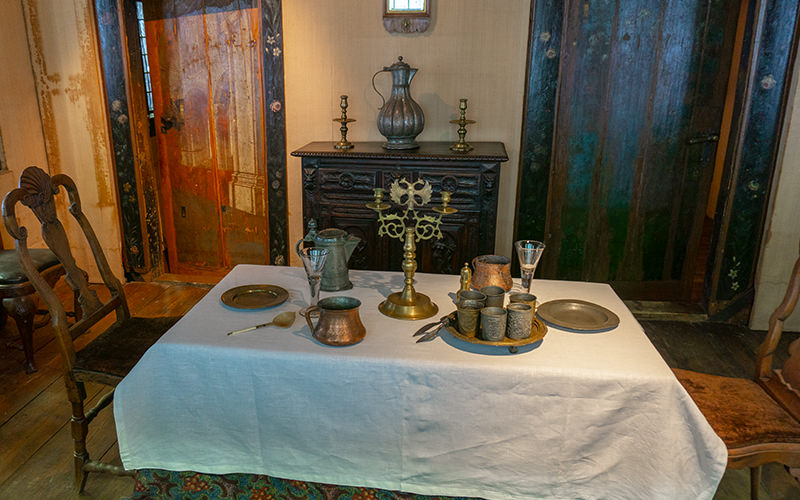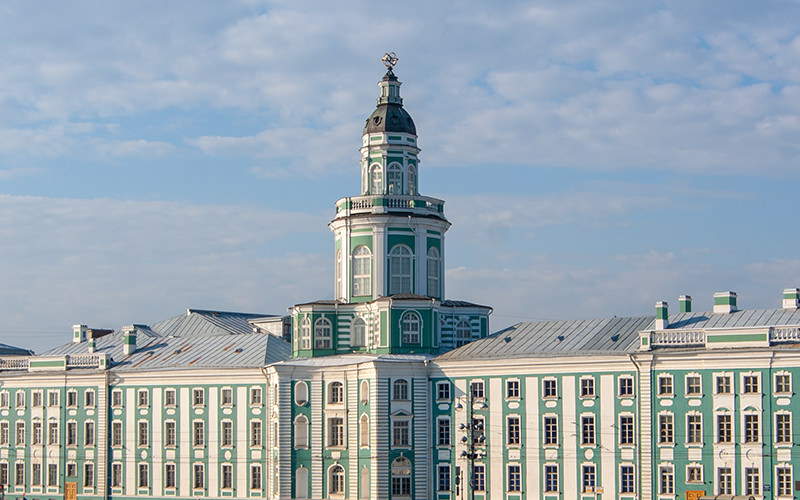Perhaps the most famous attraction of the Tsarskoye Selo Museum Reserve is the legendary Amber Room, located within the walls of the Catherine Palace. The stunning appearance of this renowned interior captivates countless tourists, while the mysterious history of its disappearance has intrigued enthusiasts of myths and legends for years. Today, I’m excited to share the story of my visit to the magnificent Tsarskoye Selo.
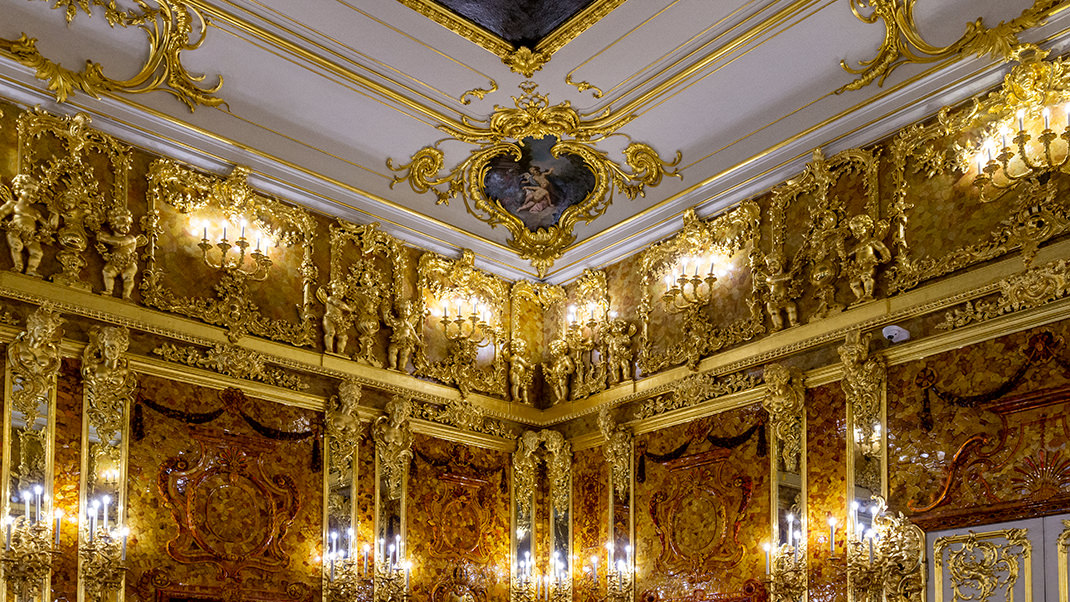
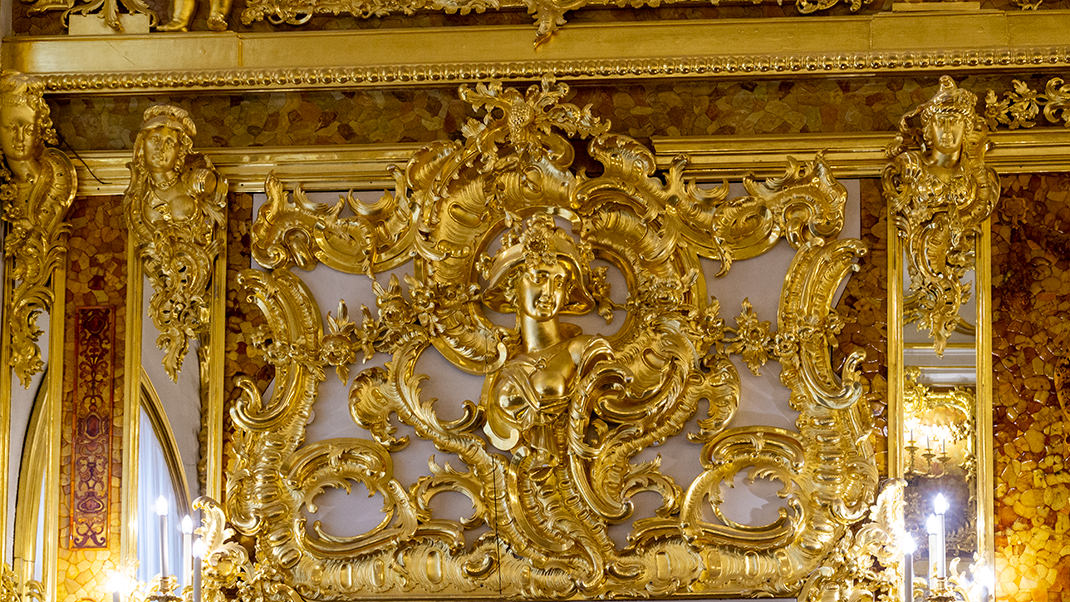
How to Join a Tour
The Catherine Palace is about a 30-minute walk from the Tsarskoye Selo train station. Trains depart from the Vitebsk Railway Station in Saint Petersburg. You can also reach Pushkin by bus or private car.
The entrance fee for the Catherine Palace is 1,100 rubles for local visitors (full-price adult ticket). For foreign citizens, the ticket costs 2,100 rubles (autumn 2024).
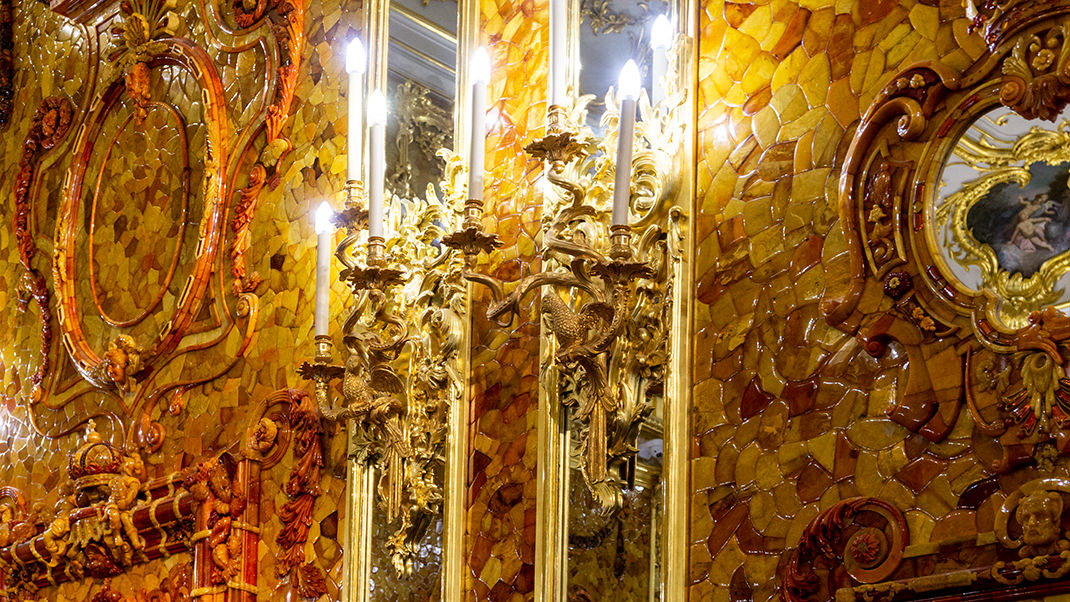

When planning your trip, keep in mind that even in the colder months, there is often a small queue to enter the palace. Be prepared to wait outside for a while. In summer, the number of tourists increases significantly, and the queue can stretch for dozens of meters.
A Bit of History
The Amber Cabinet was gifted to Russian Emperor Peter the Great by the Prussian King Frederick William I in 1716. The gift was not coincidental; Peter had openly expressed his admiration for the panels when he saw them in Berlin a few years earlier.
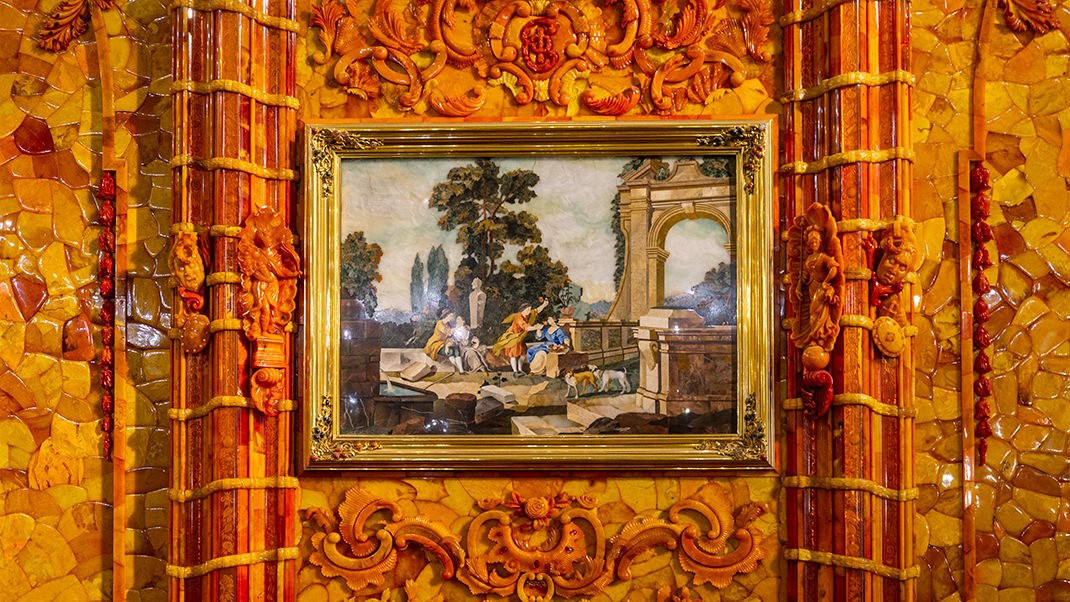
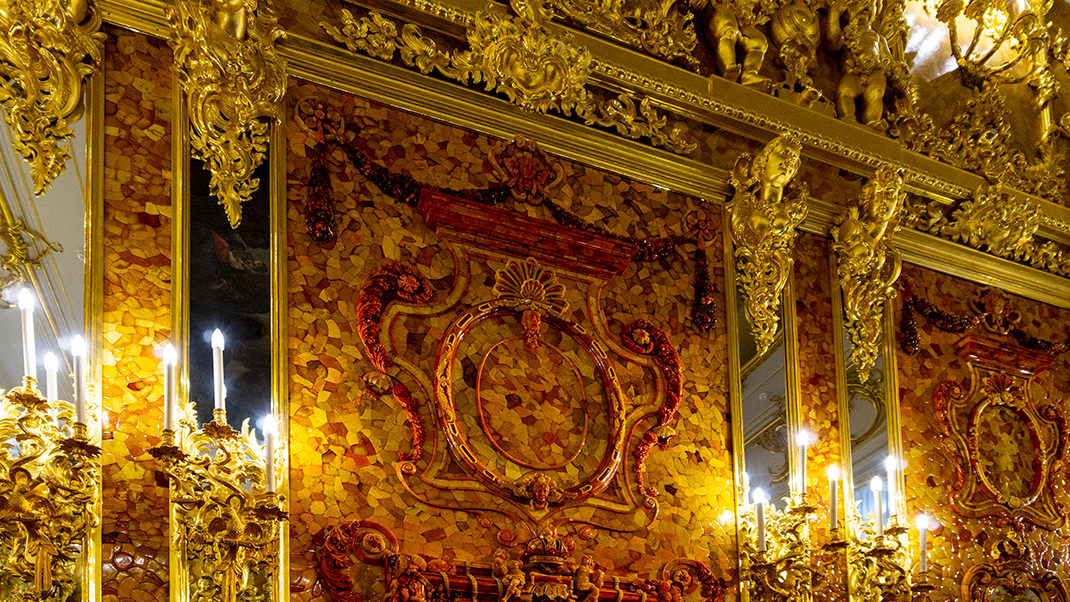
Before this unique interior found its home in the Catherine Palace, it traveled extensively between various residences in Saint Petersburg. Initially, the panels were stored in the Ludeysky Chambers in the Summer Garden. Unfortunately, during Peter’s lifetime, they were never installed. The amber panels were first assembled in one of the halls of the Third Winter Palace under Empress Elizabeth Petrovna. Later, it was decided to use them to create the Amber Room in the Grand Tsarskoye Selo Palace under the supervision of the renowned architect Bartolomeo Francesco Rastrelli.
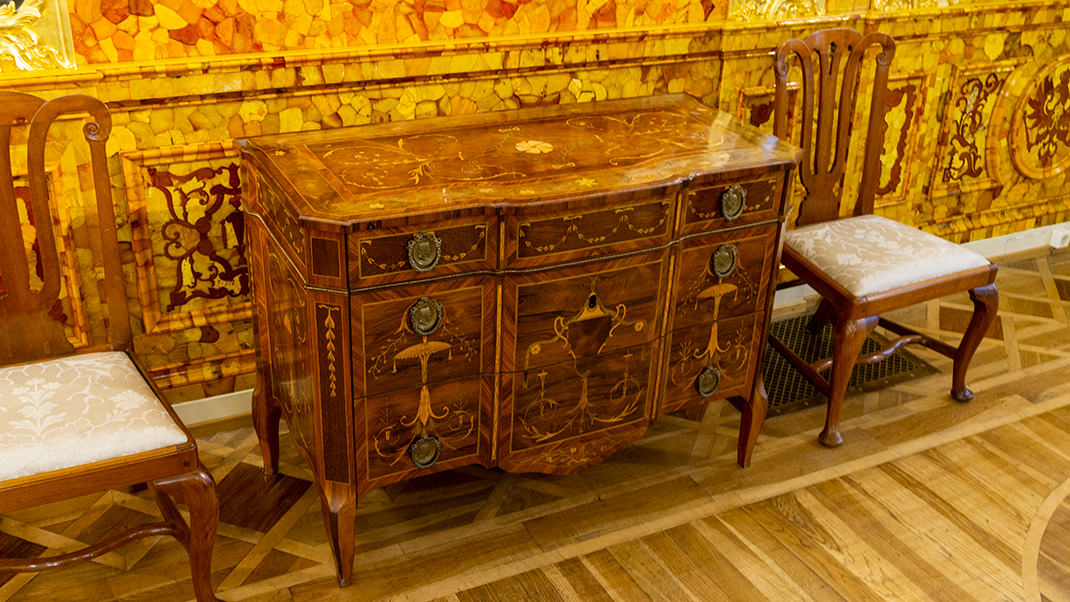
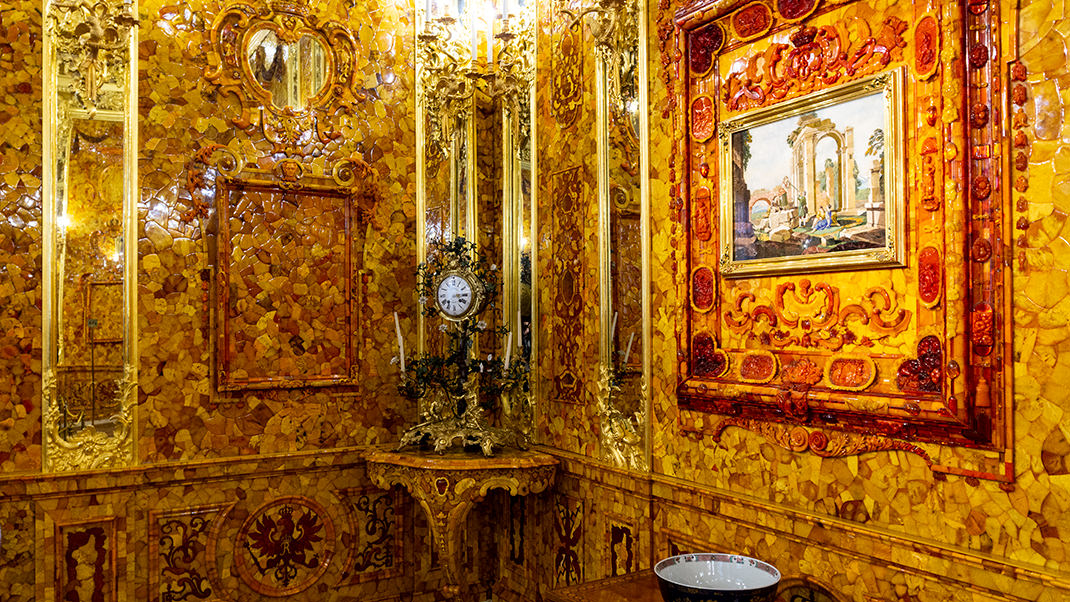
The modern fate of this luxurious interior is well-known. Despite many palace treasures being evacuated during the Great Patriotic War, the Amber Room remained in place due to its fragility. For preservation, the panels were covered with paper, gauze, and cotton, and the windows were boarded up. However, despite these precautions, German specialists dismantled the room, and it was taken out of the country.
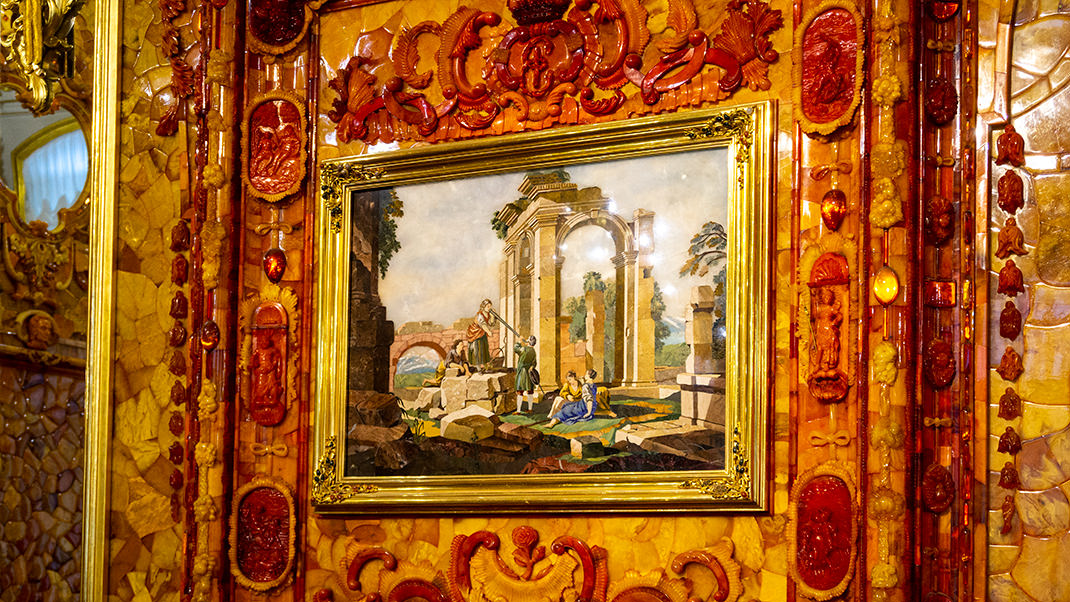
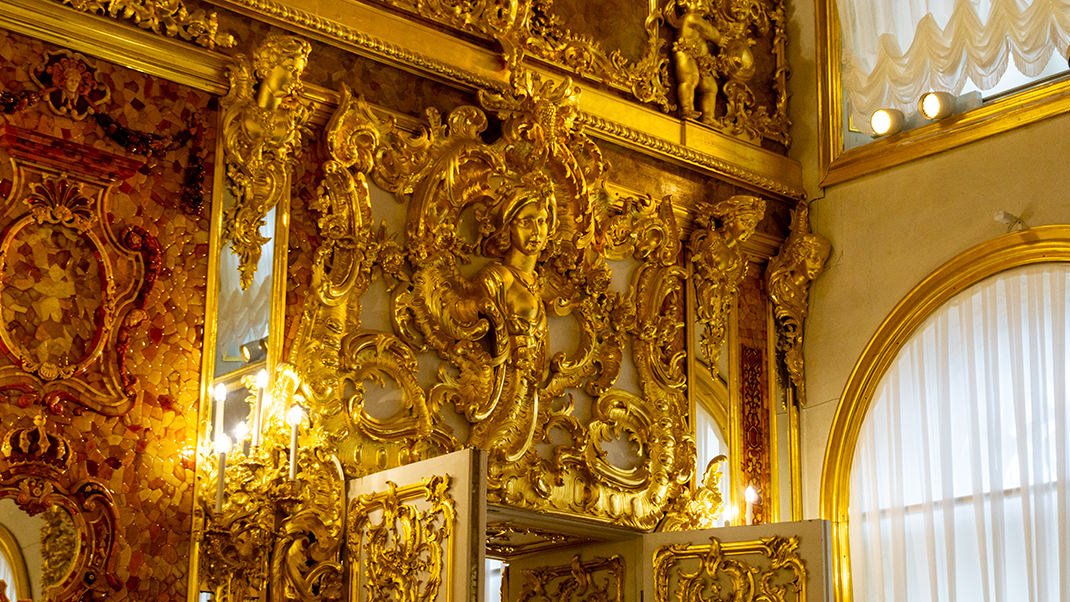
The subsequent history of the Amber Room continues to fascinate mystery enthusiasts. During the war, the room's panels were installed in Königsberg Castle (modern-day Kaliningrad). However, after the city's liberation, the interior was never found. Today, several theories about the room's whereabouts exist, but so far, the search for its pieces has been unsuccessful.
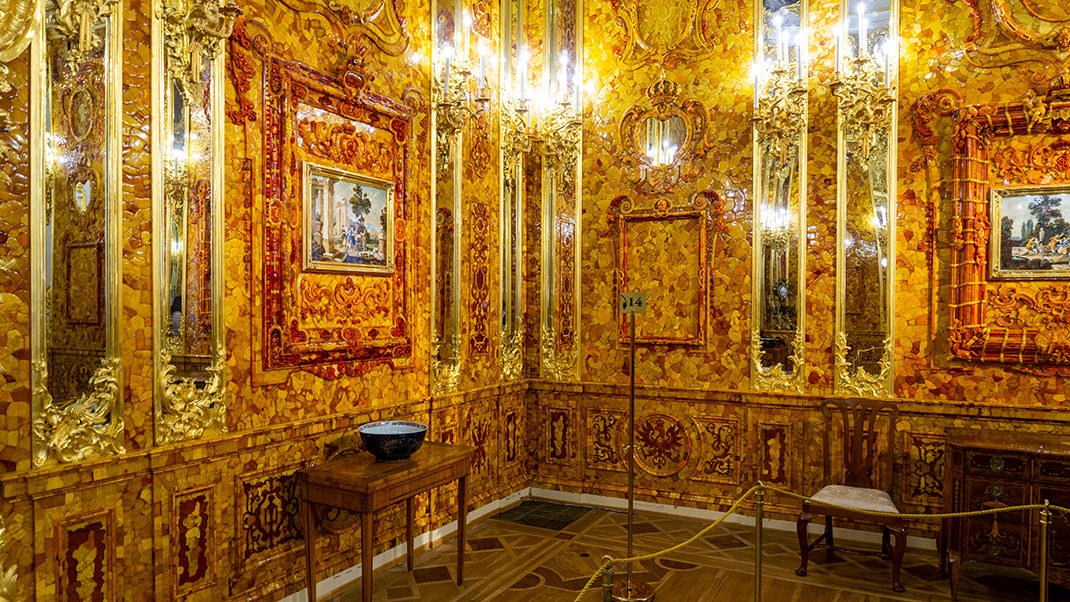
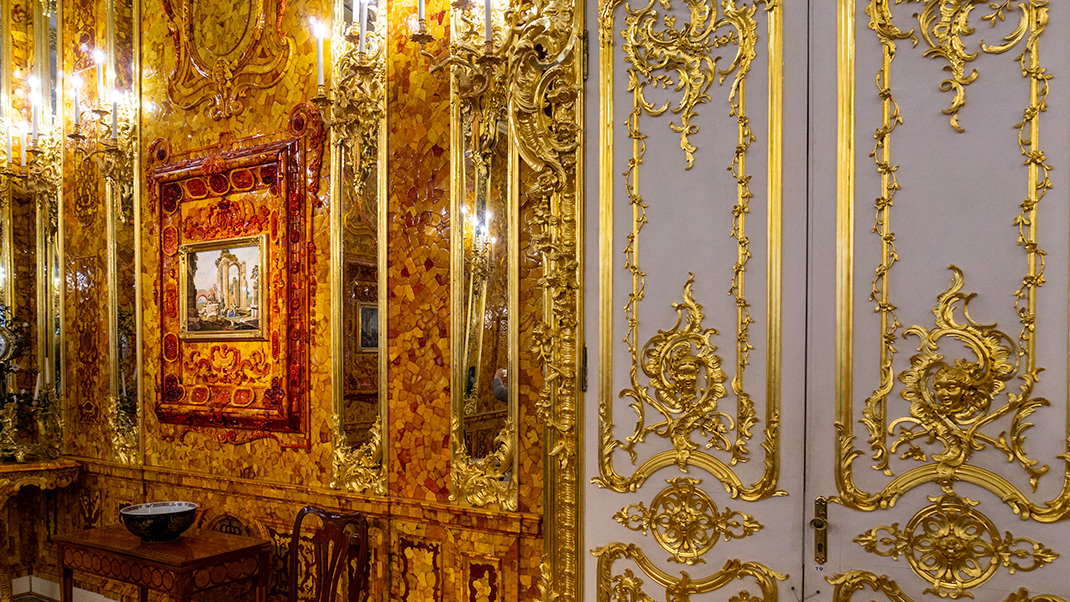
Visitors to the Catherine Palace can now see the reconstructed Amber Room. Its restoration, which took place between 1979 and 2003, was officially completed during Saint Petersburg’s 300th-anniversary celebrations. The reconstruction required several decades and over $11 million.
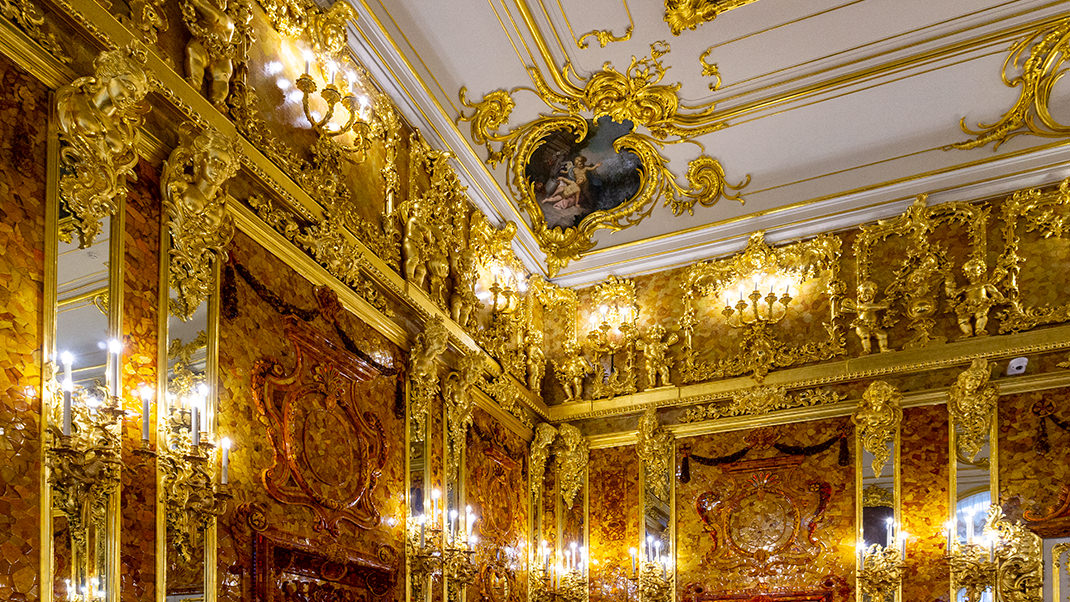
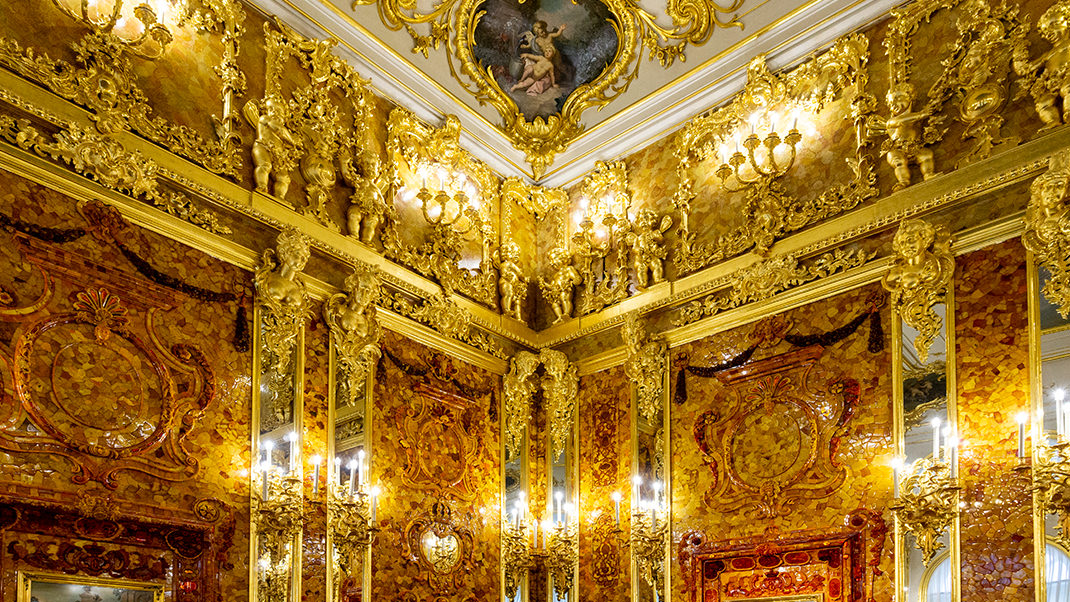
Restoration work on the former imperial residence continues to this day. For example, in the summer of 2019, another hall of the palace’s “Golden Enfilade,” the Lyons Hall, was recreated. I’ll be sharing more about it in my next article.
In summary:
- A unique interior;
- A fascinating guided tour about the palace’s history;
- In summer, visitors can enjoy the expansive park surrounding the palace, while in winter, the number of visitors is significantly smaller.



